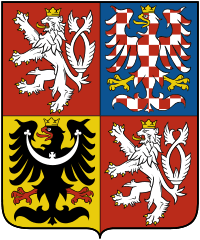#OurStories: From the kitchen to the world: How an international project opened up new horizons for students

- ←
- →
Published
Culinary arts students from socially and economically disadvantaged backgrounds were inspired in Norway and gained a passion for further study. The project "Friendship and Cooking Without Borders," which was supported by the EEA Grants under the Education program, has gone down in the history of the Secondary School in Bor as a story full of courage, patience, and a strong will.
Children from foster families, students with autism, or children from single-parent families. Under normal circumstances, the opportunity to go on an exchange program abroad would be unattainable for them. For many, the internship meant not only professional but also personal growth. "The project was very important for our students, because we have a large number of students who need support in order to have equal opportunities for education and to succeed in the world," says school director Zdeňka Valečková.

The project is being implemented by the director of the Bor Secondary School, Zdeňka Valečková, and project coordinator Tereza Průchová.
Covid obstacles
The project did not have an easy start. It began in 2020, right at the beginning of the Covid-19 pandemic. However, even long delays and complicated logistics did not deter project coordinator Tereza Průchová, who made every effort to ensure that disadvantaged students would not be left without the opportunity to participate in an internship abroad. The project deadline had to be extended twice before the first visit by students and teachers from the Norwegian partner school Fitjar videregående skule finally took place in 2023.
Norwegian students in Bor: dill sauce and brewery
When the Norwegian group of future chefs finally arrived in Bor, it was a week full of not only cooking, but also cultural exchange and shared learning. The Norwegian students had the opportunity to taste traditional Czech dishes such as dill sauce, potato pancakes, and the popular Linzer cookies, and to try cooking some of them themselves. For many of them, these dishes were completely new, and preparing them presented an interesting challenge. For example, they struggled with vanilla rolls (note: one of the traditional Christmas cookies). "In the end, however, they succeeded, and the Norwegians liked the cookies so much that they took them home with them," laughs the project coordinator.
Since Bor is located in the Pilsen region, where beer and brewing are an integral part of the local cuisine, the Norwegians were also taken to Pilsen, where they were introduced to regional dishes and given a tour of the Pilsen brewery.

Friendship and cooking without borders. Photo: Bor school
Discovering Norway: sustainable salmon farming and Norwegian specialities
But the Czech side also had much to discover. When eight Czech students went on a reciprocal visit to Fitjar videregående skule in Norway, they were introduced to the world of traditional Norwegian specialities, including salmon and dried cod (stockfish), which they prepared together with their Norwegian colleagues.
‘I learned different ways of filleting fish, and it also showed me how the profession works elsewhere in the world,’ says Jakub, summarising the exchange.
However, the stay in Norway was not just about cooking. The students visited a salmon farm, where they learned about the sustainable farming of these traditional fish and their importance for Norwegian gastronomy and the food industry. The Czech students also appreciated the beautiful Norwegian nature and clean air and had an unforgettable time exploring the city of Bergen.

The trip to Norway provided students with not only extraordinary experiences, but also a wealth of knowledge and motivation.
Project success: Friendship, overcoming barriers, and completing education
The friendships formed and experiences gained through joint activities have had a much broader impact than anyone could have imagined at the start of the project. All these activities helped the students not only in their professional growth, but also in strengthening their self-confidence and increasing their motivation to continue their studies. Czech children were able to see how gastronomy is taught in Norway: "Norwegian children are already completely professional in their first year," explains project coordinator Tereza Průchová.
The project showed how much of an impact this experience can have on students from very difficult family backgrounds. One of the stories that sticks in the memory is that of a student who, despite her difficult life situation, gained not only the impetus to complete her education thanks to the exchange program. Tereza Průchová describes her story in these words: "She really wanted to go to Norway, so we took her, and we saw a huge change in her. It meant a lot to her: she decided to finish school and yesterday she successfully passed her final practical exams. The greatest success is that even a girl from such a background is now entering a post-secondary program, which she wants to complete."
The project not only provided professional skills, but also fundamentally changed the life direction of some students.

The "Friendship and Cooking Without Borders" project has thus become an inspiring story about how educational programs can help overcome social and economic barriers and help young people achieve great things if they are given support.
| Project name: | Friendship and Cooking Wihout Borders |
|---|---|
| Project promoter: | Secondary School Bor, Plzeňská 231 |
| Project partners: | Fitjar vidaregaande skule (NO) |
| Programme: | Education |
| Grant: | 1 378 875 CZK |
| Project Goal: | The aim was to enable students of culinary arts from socially and economically disadvantaged backgrounds to gain new experiences and motivate them to complete and continue their studies. |

